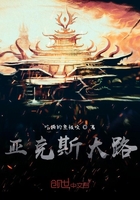"They are a pack of thieves and liars, every one of them!" cried Alessandro. "They are going to steal all the land in this country; we might all just as well throw ourselves into the sea, and let them have it. My father had been telling me this for years. He saw it coming; but I did not believe him. I did not think men could be so wicked; but he was right. I am glad he is dead. That is the only thing I have to be thankful for now. One day I thought he was going to get well, and I prayed to the Virgin not to let him. I did not want him to live. He never knew anything clear after they took him out of his house. That was before I got there. I found him sitting on the ground outside. They said it was the sun that had turned him crazy; but it was not. It was his heart breaking in his bosom. He would not come out of his house, and the men lifted him up and carried him out by force, and threw him on the ground; and then they threw out all the furniture we had; and when he saw them doing that, he put his hands up to his head, and called out, 'Alessandro! Alessandro!' and I was not there! Senorita, they said it was a voice to make the dead hear, that he called with; and nobody could stop him. All that day and all the night he kept on calling.
God! Senorita, I wonder I did not die when they told me! When I got there, some one had built up a little booth of tule over his head, to keep the sun off. He did not call any more, only for water, water. That was what made them think the sun had done it. They did all they could; but it was such a dreadful time, nobody could do much; the sheriff's men were in great hurry; they gave no time.
They said the people must all be off in two days. Everybody was running hither and thither. Everything out of the houses in piles on the ground. The people took all the roofs off their houses too. They were made of the tule reeds; so they would do again. Oh, Senorita, don't ask me to tell you any more! It is like death. I can't!"
Ramona was crying bitterly. She did not know what to say. What was love, in face of such calamity? What had she to give to a man stricken like this' "Don't weep, Senorita," said Alessandro, drearily. "Tears kill one, and do no good."
"How long did your father live?" asked Ramona, clasping her arms closer around his neck. They were sitting on the ground now, and Ramona, yearning over Alessandro, as if she were the strong one and he the one to be sheltered, had drawn his head to her bosom, caressing him as if he had been hers for years. Nothing could have so clearly shown his enfeebled and benumbed condition, as the manner in which he received these caresses, which once would have made him beside himself with joy. He leaned against her breast as a child might.
"He! He died only four days ago. I stayed to bury him, and then I came away. I have been three days on the way; the horse, poor beast, is almost weaker than I. The Americans took my horse,"
Alessandro said.
"Took your horse!" cried Ramona, aghast. "Is that the law, too?"
"So Mr. Rothsaker told me. He said the judge had said he must take enough of our cattle and horses to pay all it had cost for the suit up in San Francisco. They didn't reckon the cattle at what they were worth, I thought; but they said cattle were selling very low now. There were not enough in all the village to pay it, so we had to make it up in horses; and they took mine. I was not there the day they drove the cattle away, or I would have put a ball into Benito's head before any American should ever have had him to ride. But I was over in Pachanga with my father. He would not stir a step for anybody but me; so I led him all the way; and then after he got there he was so ill I never left him a minute. He did not know me any more, nor know anything that had happened. I built a little hut of tule, and he lay on the ground till he died. When I put him in his grave, I was glad."
"In Temecula?" asked Ramona.
"In Temecula." exclaimed Alessandro, fiercely. "You don't seem to understand, Senorita. We have no right in Temecula, not even to our graveyard full of the dead. Mr. Rothsaker warned us all not to be hanging about there; for he said the men who were coming in were a rough set, and they would shoot any Indian at sight, if they saw him trespassing on their property."
"Their property!" ejaculated Ramona.
"Yes; it is theirs," said Alessandro, doggedly. "That is the law.
They've got all the papers to show it. That is what my father always said,-- if the Senor Valdez had only given him a paper! But they never did in those days. Nobody had papers. The American law is different."
"It's a law of thieves!" cried Ramona.
"Yes, and of murderers too," said Alessandro. "Don't you call my father murdered just as much as if they had shot him? I do! and, O Senorita, my Senorita, there was Jose! You recollect Jose, who went for my violin? But, my beloved one, I am killing you with these terrible things! I will speak no more."
"No, no, Alessandro. Tell me all, all. You must have no grief I do not share. Tell me about Jose," cried Ramona, breathlessly.
"Senorita, it will break your heart to hear. Jose was married a year ago. He had the best house in Temecula, next to my father's. It was the only other one that had a shingled roof. And he had a barn too, and that splendid horse he rode, and oxen, and a flock of sheep. He was at home when the sheriff came. A great many of the men were away, grapepicking. That made it worse. But Jose was at home; for his wife had a little baby only a few weeks old, and the child seemed sickly and not like to live, and Jose would not leave it.













